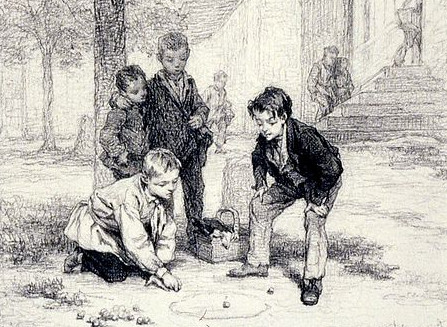Twenty-nine-year-old James Landis was operating a currency-wrapping machine at the U.S. Bureau of Engraving and Printing when an idea occurred to him. He went home and cut ordinary bond paper into pieces the size of U.S. currency, and wrapped them to resemble the bricks of $20 bills that he produced at work. On Dec. 30, 1953, he smuggled these packages into work with him and hid them in a locker room. Then he wrapped two bundles of real $20 bills in kraft paper and carried them to a storage area. There he unwrapped them, saving the labels, put the bills into two paper bags he had brought from home, and hid these.
He worked the rest of the morning at his station, then returned to the dummy bundles he had brought from home. In a toilet stall he affixed the labels to the ends of the dummy bricks, using glue he had brought from his station, and he rubber-stamped each “HA 12-31-53,” indicating that a bureau employee with the initials H.A. had wrapped the packages on Dec. 31, 1953. Then he carried the dummy bricks to a storage skid on the first floor, where he left them among packages of genuine $20 bills.
At 3:10 p.m. he finished work, changed clothes, and retrieved one of the paper bags from the dead storage area, using a pair of dirty trousers to conceal the $128,000 that the bag held. And he walked out of the building.
Landis and three friends set about buying inexpensive merchandise in order to shed the stolen money and get change, but it wasn’t to last long. When he returned to work on Jan. 4, a stockman picked up two bricks of currency and noted that one of them felt light. When the dummy bricks were discovered, the Secret Service began an investigation; Landis drove to Virginia and tried to hide the money with his father-in-law, who turned him in the following morning. Landis and his friends pleaded guilty on May 3, and all were sent to prison.




